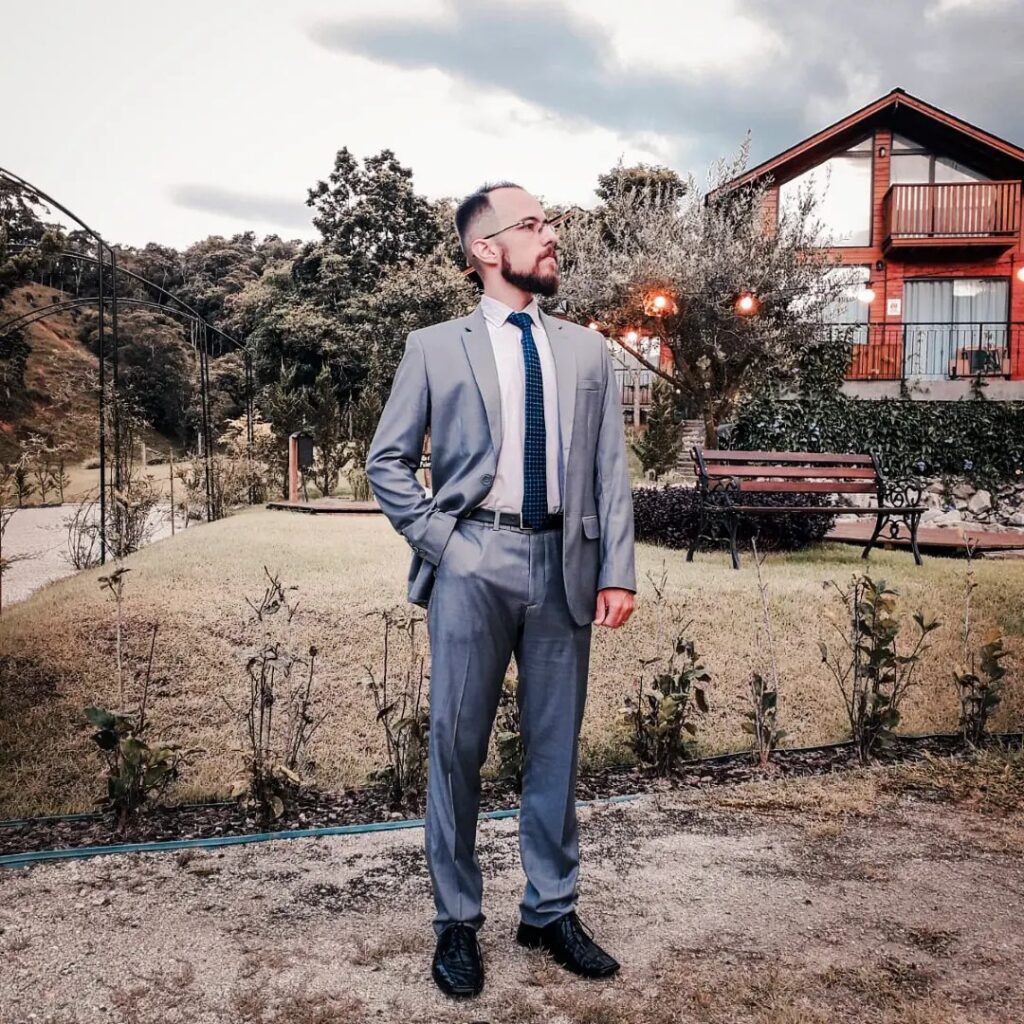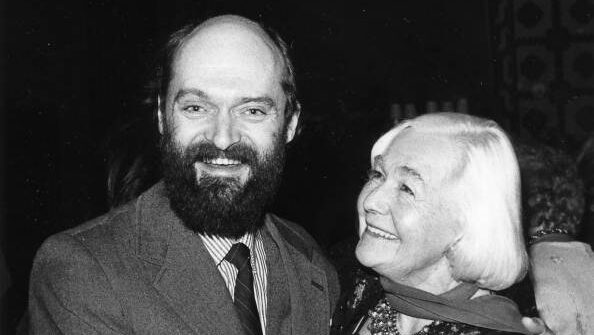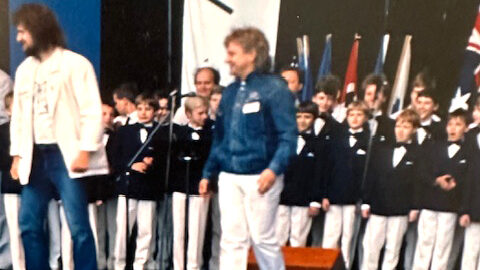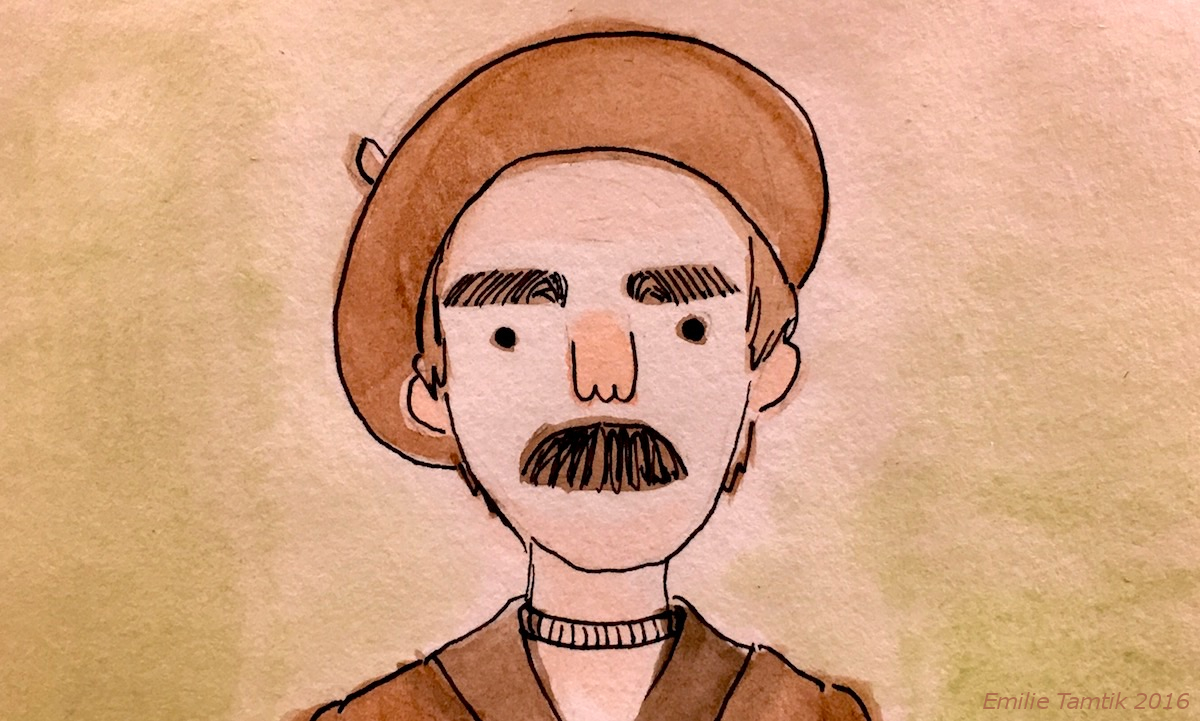
(Start from the beginning of this series here.)
There is nothing more sacred to the descendant of the blond giants of Estonia, the region of the ever-mysterious and peaceful Aestii of Tacitus, the Aestians, beyond which, he writes, “live the Hyperboreans”, than the earth, the tree, the stone, or the water. Nothing made him ignite his inner fire so readily, nothing made him shine in battle like the stars, nor lift his broad sword and spear as if he carried the sun and moon themselves, but the defence and conservation of his land and his people.
Though powerful, he doesn't love war, nor death or conquest. He loves the simple, familial life to which he is incapable of being unfaithful. He loves small insects and animals and gives them all voice and dignity. He loves tranquil lakes, mighty rivers, and mysterious swamps, always willing to honour their invisible inhabitants. He loves colourful plants and irregular pebbles as little divine gifts for his joy. He loves to sing old songs and tell old stories around the memorial fire. He loves his fellow man, his brother, in whom he sees a portrait of himself, and is devoted to perennial friendships. He loves living things, things that grow, things that die, because he is a natural connoisseur of death, finitude and cycles, and that is why he is so capable of truly loving and truly living. He loves everything he can do with his own hands. He loves to create, build, invent, and produce. He loves his home, but he also loves to travel. He loves the distances, the heights, the challenges, the depths, and the mysteries, and it is because he has a place. It is because belongs to someone and knows what he is, that he loves to return home.
How easily it is given to me to write about the Estonian soul! All I must do is expose my own. But there were no photographs at the dawn of my first days. Neither music, nor myth, nor land, nor wisdom. However, a destiny had already been placed above me since then, and discovering it would perhaps be the greatest of my adventures – the search of Alastor, a solitary lover of the small gestures of Nature, whose childhood was nourished “by solemn vision, and bright silver dream”, leads him to know “all of great, or good, or lovely, which the sacred past in truth or fable consecrates.” Pursuing “Nature’s most secret steps”, he left “His cold fireside and alienated home to seek strange truths in undiscovered lands.”
A true journey of the soul in search of itself, the eternal return of Arthur that begins with ignoring his own destiny and power and, in the struggle for justice, ends in the search for the Grail. Of Jason, a hero who is born unsuspecting and, ignorant of himself, crosses the shadow with his Argo in search of the Golden Fleece. Of Sigurd and Siegfried, son of Odin and Wotan, who, raised and educated by a stranger, becomes a stranger to himself, but who, thanks to the ancient magic sword and knowledge of nature, recovers the treasure and knows true love and immortality. Of Jonas, Jonah, my namesake, made a prophet by Yahweh, summoned without warning, who in ignorance tries to flee from himself but, once enlightened “from deep in the realm of the dead”, goes out to carry out his educational and purifying mission among infidel lands. And, finally, of Sohni, the Kalevide, the great ancestor of all Estonians, symbol of the collective soul, always in a state of search, either for the honour and love of his mother Linda, or for the wisdom and blessing of his father Kalev, who overcomes obstacles, wins in combat, and constantly learns from his own mistakes, with the sword of knowledge, until he becomes a wise king and is, like all great heroes, immortalized.
This is the hard path of wandering souls who yearn for a higher conception of themselves, before knowing that they are predestined—not, however, by transcendent arbitrariness or by a determined future, but by their own origin, their own star, their own destiny, their own ideal. For the most philosophical minds, this is the mythologically traditional translation of the necessary progression of Spirit as demonstrated in the stages of Hegel’s The Phenomenology of Spirit. That is, the given state of affairs never satisfies the particular Spirit, the seeking consciousness, which yearns, and from a pure look (“reines Zusehen”), while experiencing nature and the world of phenomena, in a negative moment, it appears to itself, again and again; through the estrangement in which it loses itself in order to gain itself; through the recognition in which it gains itself to lose itself, in incessant dynamic confrontation. But each time, in a superior way, while recognizing itself as a concrete concept that is true, free, and self-determined individuality, it reconciles in itself all opposition during the course towards the Absolute Spirit.
(to be continued)
About the author:
Born in São Paulo, Brazil in 1993, of Balto-Slavic origin, Jonas Otávio Bilda is a graduated Psychologist and Philosopher. He works as a free-thinking writer, translator, and proofreader.
He is the author of the books O Alvorecer das Artes do Ser (The Dawn of the Arts of Being, 2016), Cartas de um solícito acompanhante (Letters From a Solicitous Companion, 2018), A Civilização Eterna (The Eternal Civilization, 2020), O Livro de Veles (The Book of Veles, 2020), Kalevipoeg, o épico da Estônia (Kalevipoeg, the Estonian Epic, 2021), A Instrução de Amenemope (Instruction of Amenemope, 2021), Coreia, história e cultura da estrela do Oriente (Korea, History and Culture of the Star of the East, 2023). Bilda is also co-author and a pseudonymous author of more than ten other books, and a founding professor of the Curso de Filosofia Universal (Universal Philosophy Course).
Discover his work on his website BildaEscritor.com and on Instagram ( @jonasbilda ).



